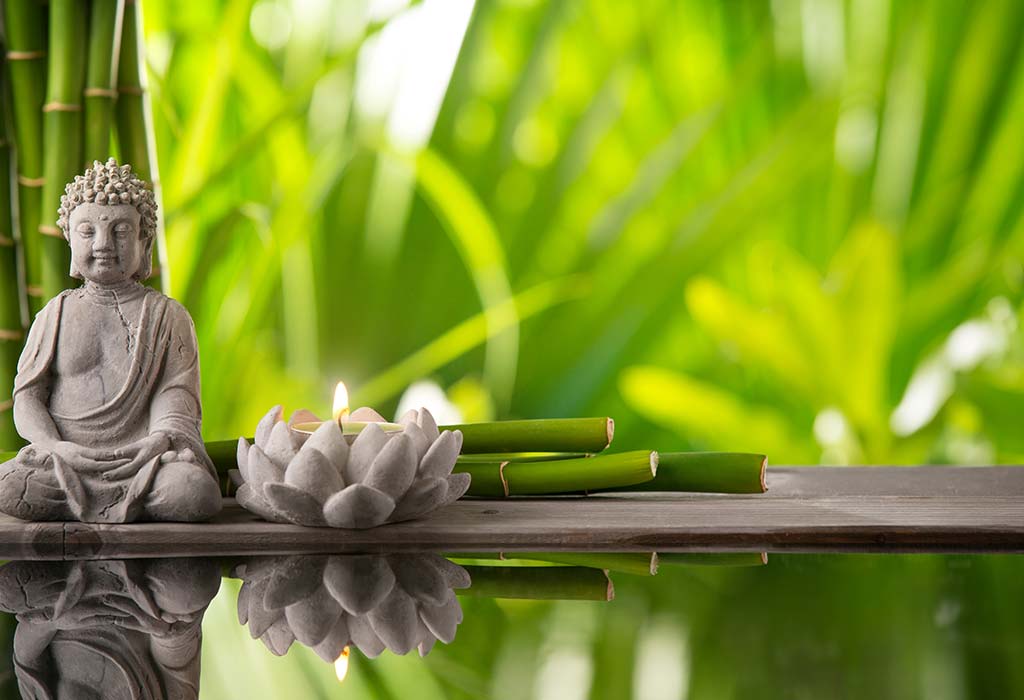Feng Shui aims to maximize the life energy Chi and thus lead a life that is as content as possible. At its core, the teaching is about the optimal division of light and space: Those who live in harmony with light and dark, called “Yin” and “Yang” in Chinese, allow the life energy Chi to flow unchecked – in short, it leads a balanced life.
It is important to mention in this context that the two opposites are equivalent and should be evenly distributed in a living room. The art of living in harmony with the environment has been practiced in China for at least 3500 years and also plays a major role in western modern interior design.
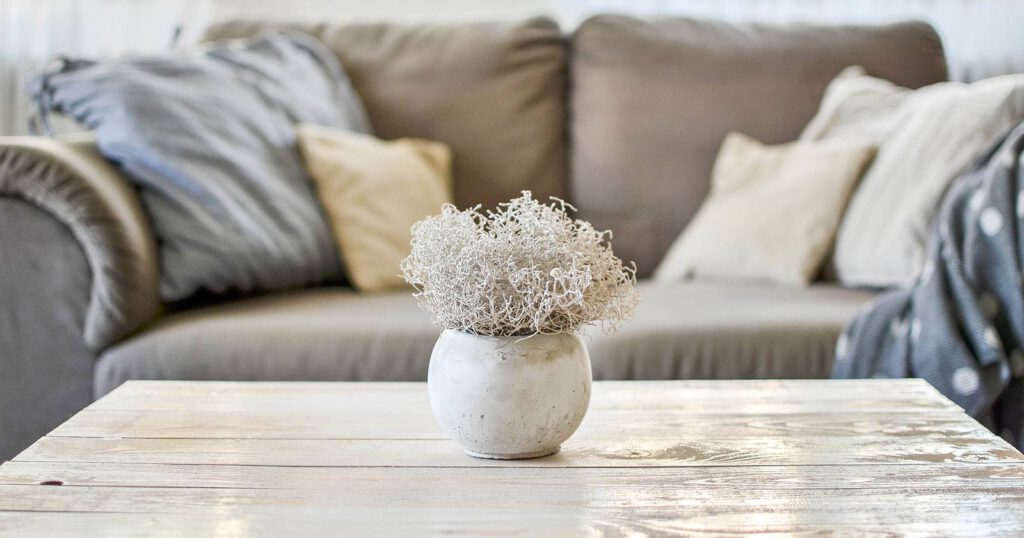
What is Feng Shui anyway and what is the meaning of the colors?
However, the following applies here: Different living areas require different energy levels. For example, while a work area benefits from a high level of light and color, the sleeping area can only really provide relaxation if it looks dark and calm there. Cold, dark and soft colors such as green, blue or brown are more likely to be associated with Yin and bring calm to a room. Yang, on the other hand, finds its expression in bright, summery and strong colors such as red, orange and yellow.
Feng Shui and the teaching of Yin and Yang
According to Feng Shui, the greatest source of chi is light. Here, too, care should be taken to ensure that the intensity and amount of light are appropriate for the room. While an active area such as the kitchen benefits from a lot of light, it makes sense to keep the bedroom darker, for example with dimmable lamps or curtains and blinds – although these should also be translucent.
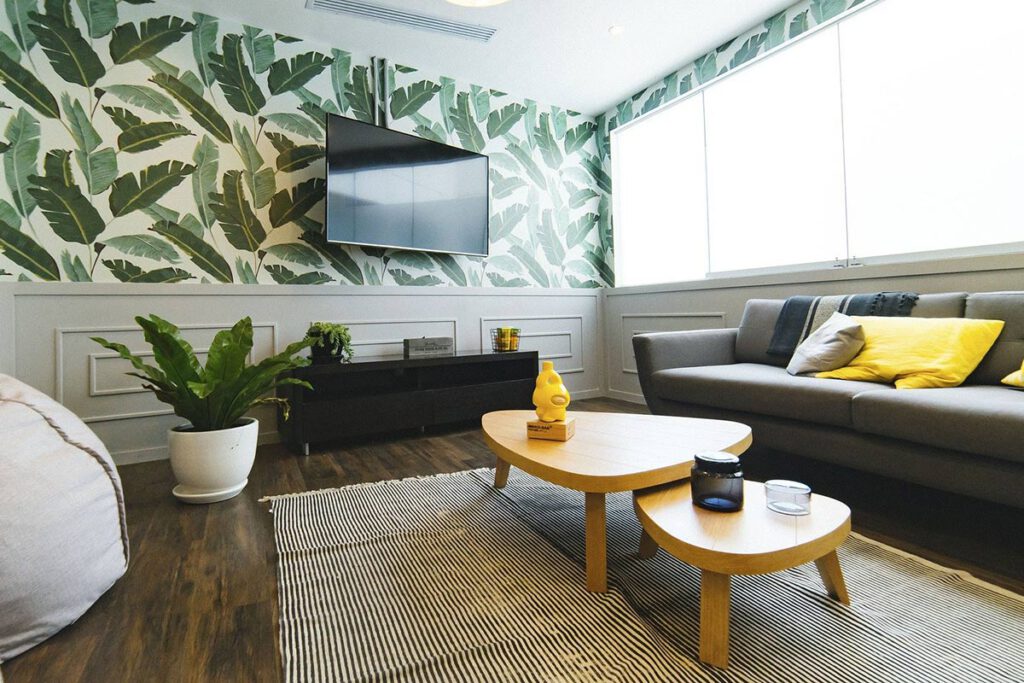
For the Chi to flow through the entire apartment, all blockages should also be removed, for example through open doors between the rooms – with the possible exception of the bathroom – and the largest possible passages. Therefore, be careful not to fill hallways with large, deep furniture.
Feng Shui rules: How do I furnish my apartment according to Feng Shui?
The separation of areas of life also has its origins in Feng Shui. Accordingly, you should not work and sleep in the same room. If this cannot be avoided, for example, because you live in a one-room apartment, it makes sense to delimit the areas by cleverly placing pieces of furniture.
More important than the selection of furniture in Feng Shui is their position in the room. A dining table, for example, should be in the back of the room, because: We feel safest and most comfortable when we have a solid wall at our backs and the door when we are together with friends or family.
This is why Feng Shui is so important in the bedroom
Nowhere is chi optimization more important than in the bedroom. If the energy of the room is disturbed, your sleep behavior could be significantly disturbed, which in turn can harm your attitude towards life. Both the direction of the bed and the relationship between the bed and the shape of the room play an important role in maximizing chi. In terms of color, you should keep it rather dark and calm.
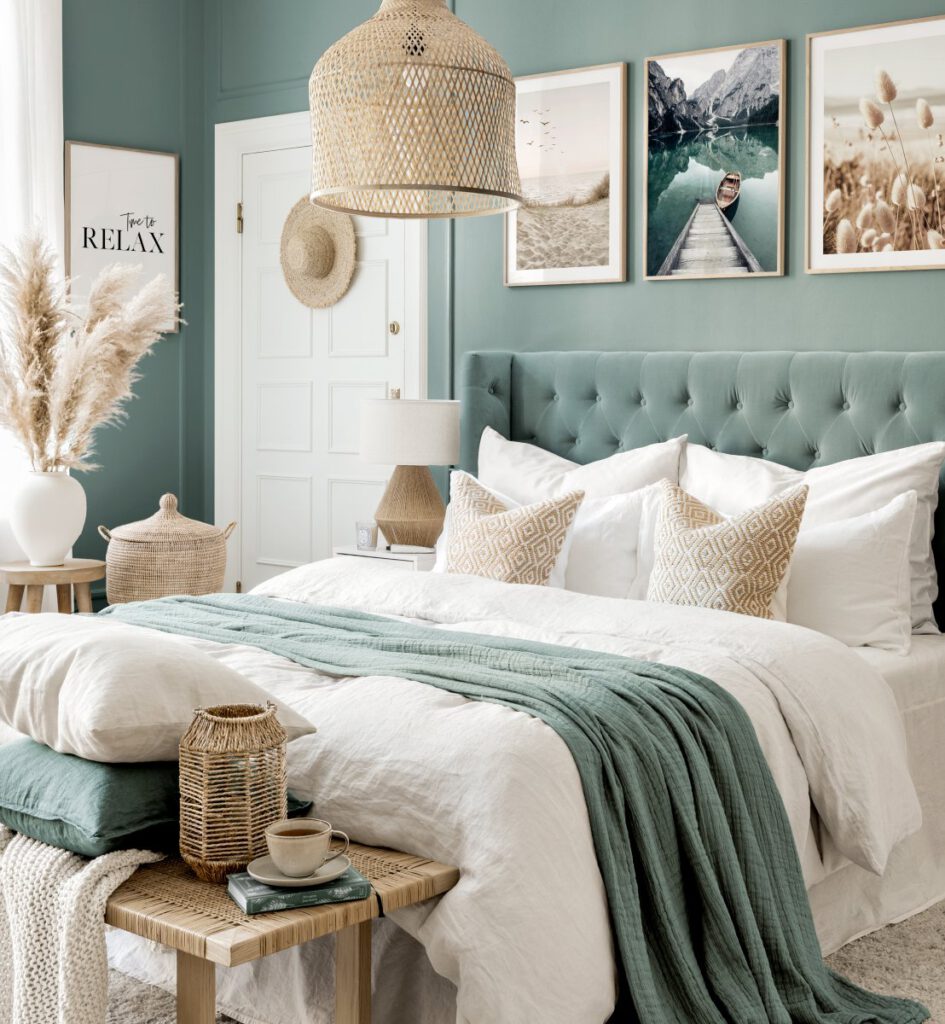
Ideally, your bedroom should be at the back of the house, facing the garden, and as far from the street as possible. Do not place your bed opposite the door (negative energies can pull through), but ideally in a corner of the room. It should not be free in the room, but if possible with the head end against a wall. If that is not possible, you can make do with a room divider that shields the bed from the door. The bed should also not be under a window unless this is at least 1.5 meters above your head when you sleep.
Feng Shui in the living room: This is how it gets cozy
The living room is usually the liveliest place in the whole house. Here we sit together with friends and family to play games, watch TV, or have lively conversations. As already mentioned, you should make sure that the coziest corner in the living room, probably where the sofa is, also exudes a feeling of security and security. Do not place sofas and armchairs freely in the room, but with your back to the wall and a view of the door. Use room dividers, bookshelves or maybe a house bar to separate things.
Life energy flows particularly well along with curved shapes. That is why it pays to think about designer furniture, especially in the living room, such as a kidney-shaped coffee table or a sofa with the sides curved upwards like a smiling mouth.
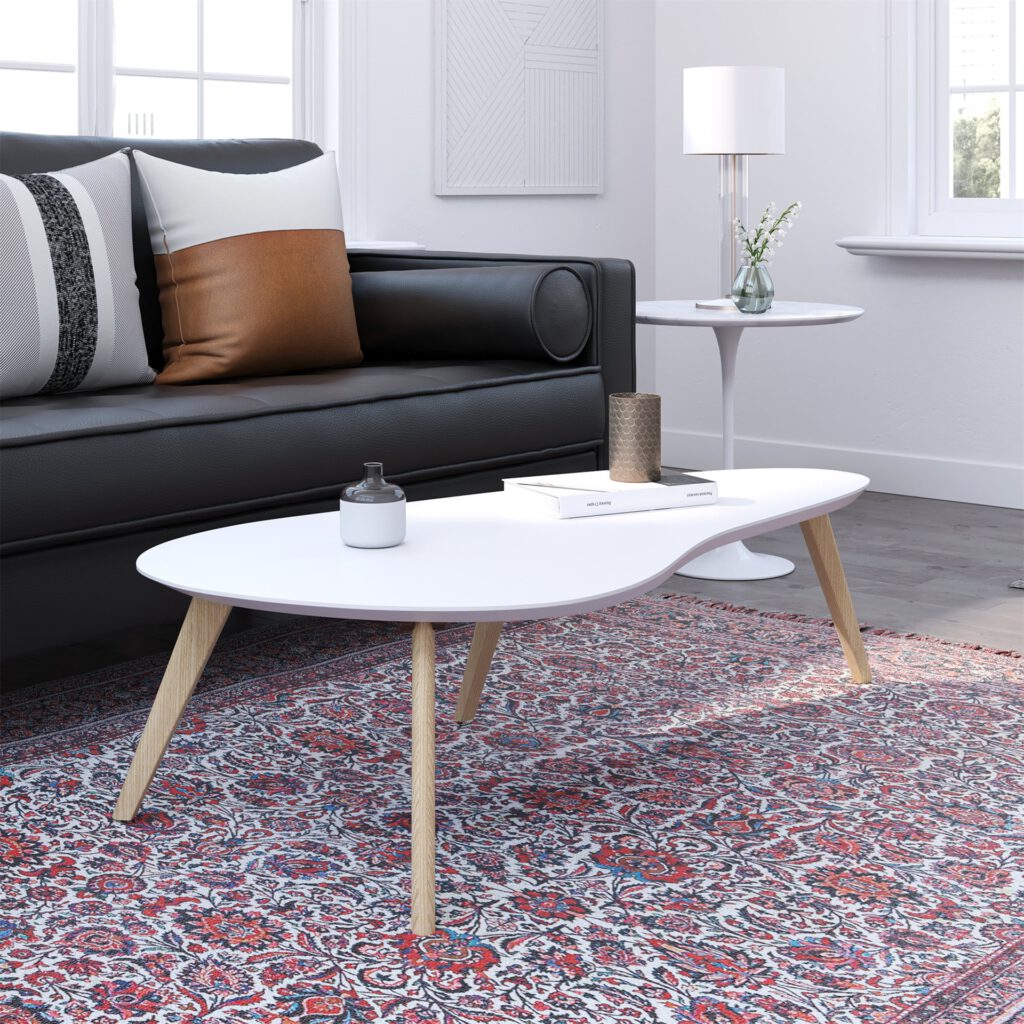
Decorating according to Feng Shui: The dos and don’ts
Plants are welcome in Feng Shui because as living organisms they strengthen the Chi – provided they are well cared for. Dead or withered plants have the opposite effect. Therefore, make sure to dispose of old bouquets early and water your plants often enough. Plants are best placed in corners or on the side of the room, which otherwise look rather inconspicuous.
Water also strengthens life energy – Feng Shui literally means “wind and water”. Therefore, think about a fountain or pond in the garden or an indoor fountain. For this very reason, many hotels, restaurants or office buildings often have walls that look like a green waterfall.
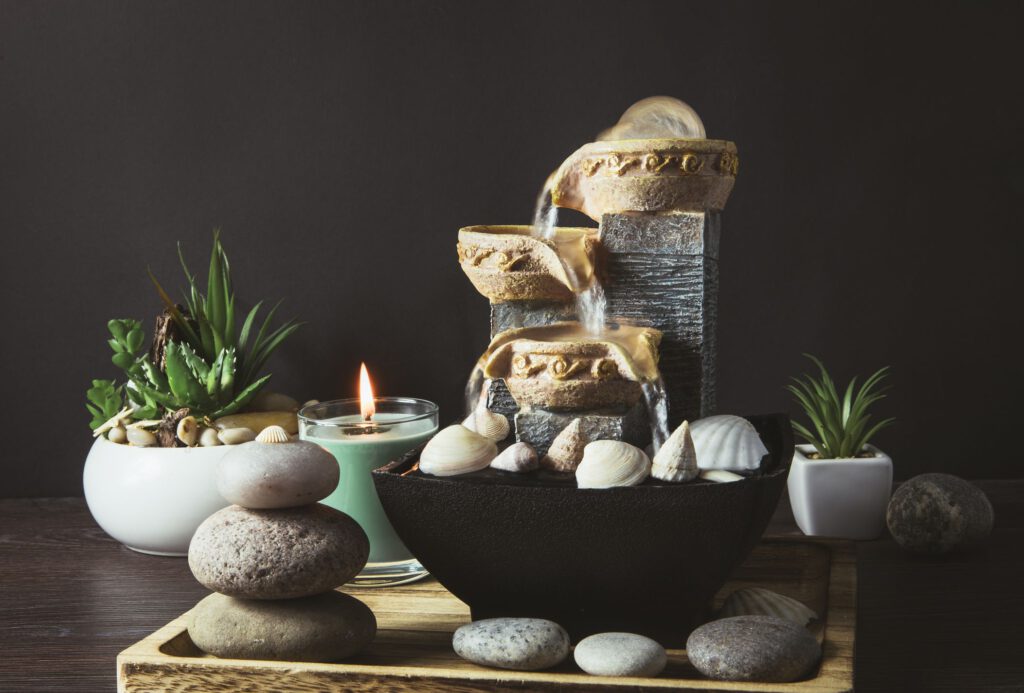
In general, however, in Feng Shui: less is more. Avoid cluttered spaces and focus on some thoughtful home accessories. One of the most important rules in Feng Shui actually orders. You should therefore tidy up regularly and part with things that mean nothing to you, so you release Chi again – this is where the Chinese furnishing philosophy and the Japanese clearing-out method of Marie Kondo come together.

